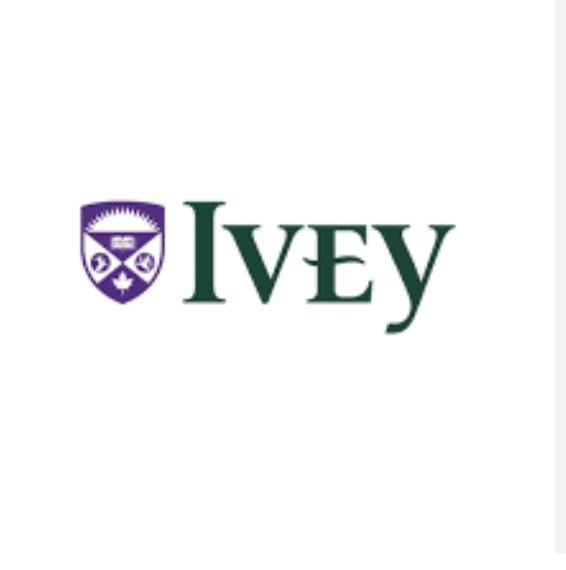If you’ve been considering applying to an MBA or Master’s degree at a business school, you may already know, by now, that one of the mandatory requirements is to write an entrance test to demonstrate your quantitative and verbal skills.
Why would such tests be relevant to business school admissions?
Since MBA programs involve dealing with lots of numbers, plus a lot of reading and writing, the admissions teams are looking for solid quantitative and communication abilities in their candidates. They come in especially handy when a candidate is coming from an arts degree.
There are two standardized tests that are widely accepted by business schools globally: the GMAT and the GRE.
Although the GMAT has been the go to test for business schools for a long time, in the last few years more and more business schools started accepting GRE scores as well.
Why did business schools begin accepting the GRE?
The answer is a lot simpler than you think! Business schools are no longer looking for one specific type of applicant. Because the GRE is taken by many Arts and Science grads to get into graduate school and measures similar skills compared to the GMAT, accepting scores from both exams is a way to diversify the applicant pool and the student population. Nevertheless, most schools see very few candidates submitting GRE scores.
The GMAT has been more commonly accepted and admissions officers are more familiar with its score breakdown, but this should not worry you if you would like to write the GRE test. They use an online comparison tool created by the test makers to convert your score to the GMAT scale.
What are the benefits of writing the GRE?
The GRE has been originally developed as a test for business Master’s degrees, such as the ones in Arts, Education, Computer Science, Engineering, etc. If you’re still exploring options and want to apply to both business and non-business degrees, the GRE will allow you to use your test results for both applications.
What are the benefits of writing the GMAT?
The GMAT is a specialized test that was developed specifically for business degrees. You would only choose the GMAT if you’re applying to business schools, since this test is not accepted for any other, non-business degree.
If you’re applying to highly competitive MBA programs (and most of Admit Master students do), taking the GMAT sends a strong signal to the admissions committees that you know exactly what you want and are serious about pursuing a business education. This may give you an edge on your application.
It’s not only about Admissions
The ultimate goal of almost every MBA candidate is to find an excellent job after graduation.
Since its launch in 1954, the Graduate Management Admission Council (GMAC) has done a remarkable job of continuously improving the GMAT and making it more and more relevant to business education.
Traditionally there were three sections: quantitative, verbal and a writing. As the business education evolved and became less academic and more practical, the GMAC realized the gap and addressed it by adding a fourth section in 2012 – Integrated Reasoning (IR).
This section asks the candidates to solve 12 mini business cases and provides a good indicator on a candidate’s ability to analyze and interpret data from different sources, such as graphs, charts, emails, memos, etc.
The addition of this section was one of the reasons why more and more professional firms (in industries such as consulting, investment banking, audit and accounting, etc.) use GMAT scores to screen candidates for both internship and full-time employment.
Why would companies care about GMAT scores?
Companies in competitive industries have a rigorous selection process for MBA interns and graduates. Since the GMAT has been universally accepted as a management admissions test, recruiters in these industries might find it easier to look at your GMAT score along with your MBA grades for pre-screening purposes. This is another reason why choosing the GMAT and taking it seriously might be in your best interests.
What would you recommend for me?
If you are sitting on the fence about which test to write, our recommendation would be to take the GMAT. As you can see, the GMAT is used not only for business school admissions, but also for your future employment opportunities. The admissions teams are more familiar with the GMAT and can interpret your score better. When you benchmark yourself against other candidates that apply to business schools, the GMAT score is easier to compare, since class profile scores are usually reported based on GMAT scores.
Why does the GMAT look so difficult and daunting?
One of the reasons why so many candidates are overwhelmed with the GMAT is that this test requires a different way of thinking, what we at Admit Master call “Thinking like a CEO”.
Unlike many other tests, GMAT does not test deep knowledge of any specific subject matter. Rather it evaluates your creative thinking, analytical, problem solving and time management skills, all in a high pressure stressful environment.
Because this is not a traditional academic test, traditional academic methods to prepare, such as reading books, memorizing tons of content, or attending lectures, usually don’t work well. Imagine if you were to learn how to swim by reading a book or attending a lecture on swimming.
Most candidates are comfortable with studying for a knowledge-based test. After all, this is how we learned in high school and in University. But such study methods wouldn’t get you very far on the GMAT. This is why professional coaching and training work well, because they help you develop the necessary skill set required to do well on the test, instead of simply teaching you a lot of theory.
Admit Master is one of very few companies that offer practical training instead of long lectures or volumes of books to read on your own. This training is intensive, requires your full commitment to achieving high scores on the GMAT, and yields excellent results.
I need a high GMAT score. What is the best first step to take?
Because the GMAT is a test of skill and not just knowledge, we all have a certain level of skill to begin with. Before beginning to prepare for the GMAT, we recommend writing a free practice test to benchmark your starting level and learn how much you might need to improve.
After completing your practice test, we’ll be happy to help you build a solid study plan to improve to the score you need to gain admission to your dream business school within your required timeline.
You could write this test from home, or come to our test center and write it in a proctored environment that simulates the real test day experience.
[button color=”blue” link=”https://admitmaster.com/freetest”] I want to write the test at home [/button] [button color=”green” link=”http://freeexam.eventbrite.ca/” target=”_blank”] I want the real test day experience [/button]
Good luck!





